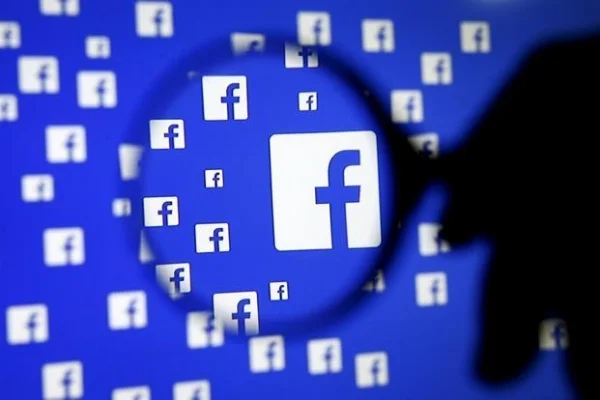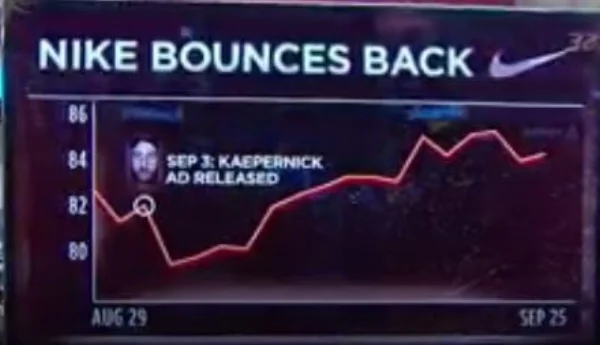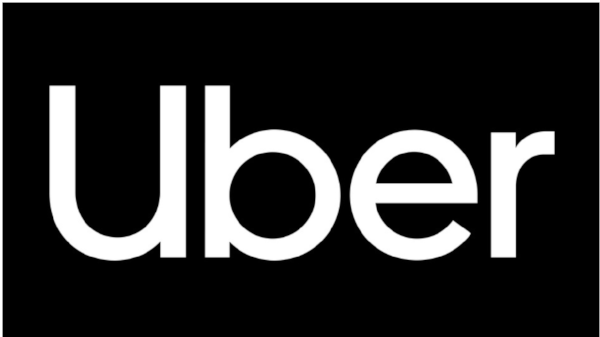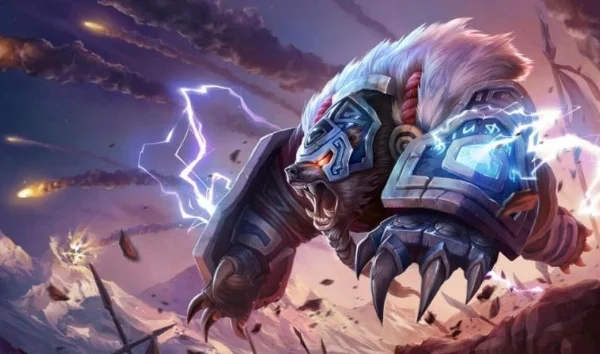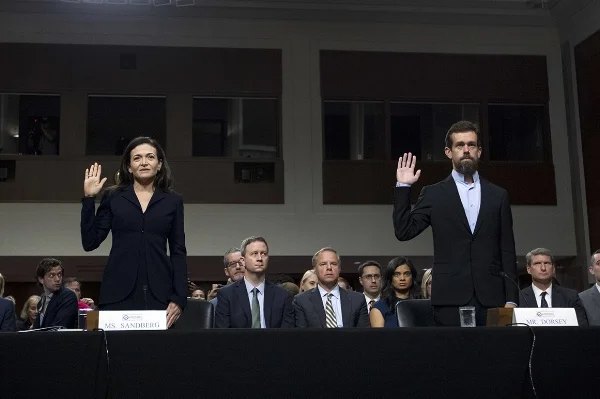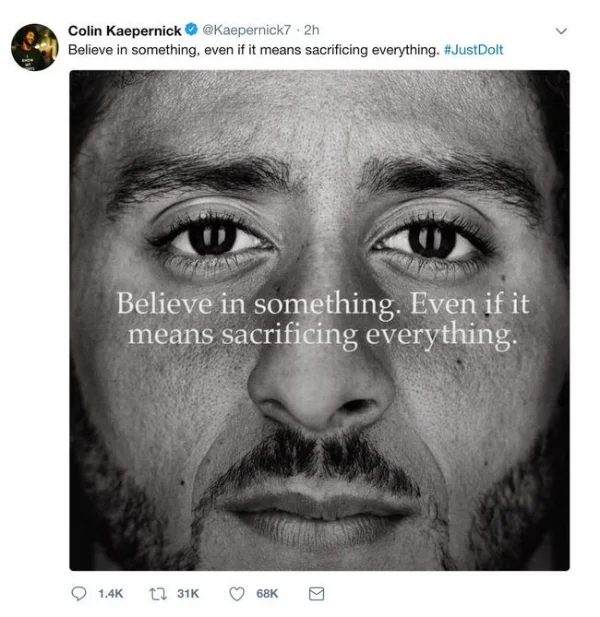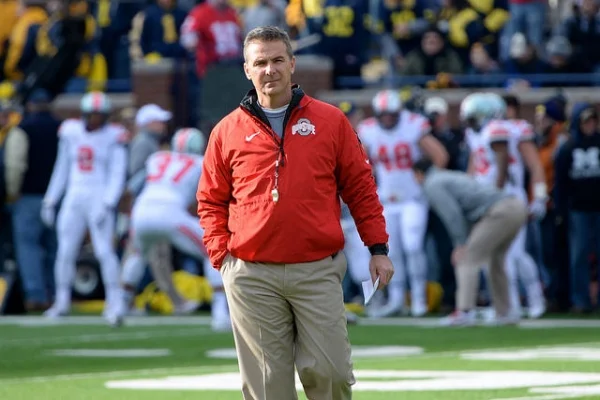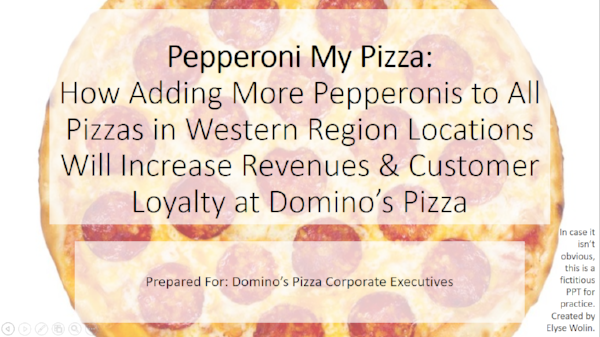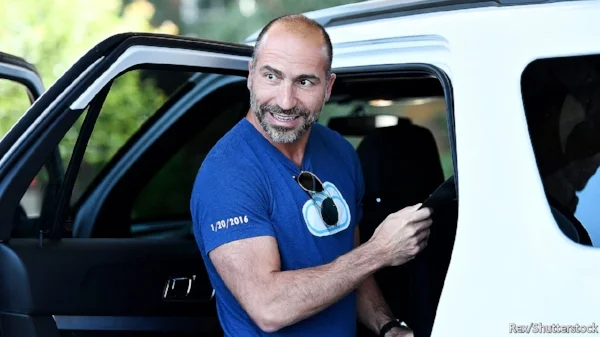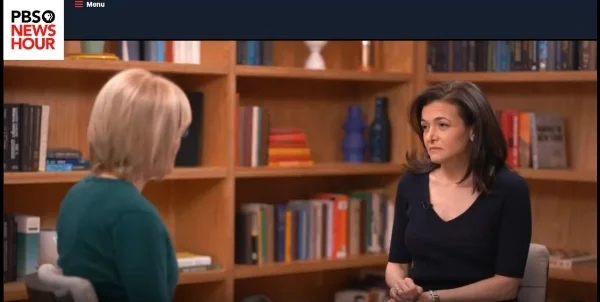Facebook Breach Announced Today
Millions of Facebook users inadvertently gave hackers access to their accounts, and the company is trying to fix the problem. Hackers found a way in through the “View As” feature, which people use to see how their profile looks to others.
The company learned of the issue this week and today held a conference call with reporters. To the extent to which Facebook could manage the story, it’s the perfect day for such a report, when the country is focused on whether lawmakers will support Brett Kavanaugh’s nomination to the Supreme Court despite allegations of sexual assault.
On the conference call, CEO Mark Zuckerberg stressed that fighting hackers is an ongoing concern:
"This is a really serious security issue. This underscores there are just constant attacks from people who are trying to take over accounts and steal information from our community. This is going to be an ongoing effort."
Facebook’s VP of product development posted a “Security Update” statement on Facebook’s news site, including this reassurance:
“People’s privacy and security is incredibly important, and we’re sorry this happened. It’s why we’ve taken immediate action to secure these accounts and let users know what happened.”
Cover image source. Spotlight image source.
Discussion:
Do you agree that Facebook timed the announcement when a bigger story would likely overshadow the news? Or am I just cynical?
Assess the Security Update as a persuasive message. Describe the tone and organizational strategy. How well does the statement achieve its objectives?
How well does the company take responsibility for what happened?
Nike Addresses Kaepernick on Earnings Call
On a quarterly earnings call, Nike CEO Mark Parker addressed head on the new ad campaign with former NFL player Colin Kaepernick. Following strong first-quarter earnings and revenue growth, Parker expressed confidence in Nike’s sponsorship agreement, particularly related to social media engagement:
“How we look at it is how do we connect and engage in a way that’s relevant and inspiring to the consumers that we’re here to serve. Our brand strength ... is a key dimension that contributes to the ongoing momentum that we’re building across the Nike portfolio.”
About an ad campaign that also features athletes Serena Williams and Lebron James, Parker said,
“These are actually very inspiring athletes, and again we feel like that campaign has delivered on that message in a way that’s really connected with people around the world.”
But the stock did fall in after-hours trading after the earnings report. Analysts say investors expected more than 10% revenue growth, and they note this is the first quarter since a sexual harassment scandal hit the company.
Discussion:
The company executives tout the campaign results on social media. How much do these results matter compared to the earnings report?
Maybe this is another example of how quarterly reports aren’t the best measure of company performance. Should we be looking longer term? Why or why not?
Uber Rebranding
In the past, Uber had been criticized for questionable business practices and ethics, and the company is still trying a turnaround. They hired Dara Khosrowshahi in August 2017 and distanced themselves from founder Travis Kalanick.
Now Uber has a new branding initiative. The marketing campaign, "Doors Are Always Opening,” is credited to 72andSunny, a Los Angeles firm.
A video shows significant events in people’s lives—giving birth, meeting your partner’s parents—and how people rely on Uber.
Paulie Dery, Uber's executive creative director, describes the objectives as follows:
"What we are really saying is opportunity happens everywhere if you are willing to move. You know what happens when you sit still? Nothing. And I think that is a great Uber story. We've always had a certain amount of hustle and belief that movement creates something better for everybody, and that's really at the center of the idea."
The company also has a new logo: simply the company name, which insiders hope will become a verb, like Google.
Discussion:
Uber’s previous campaign was called “Moving Forward” to distinguish the company’s controversial past with its future. How well do you think this new campaign will accomplish its objectives?
What’s your view of the new logo, simply the company name?
Changes at Riot Games
Following allegations of sexism, Riot Games has apologized and is making changes. A long report by Kotaku placed blame mostly on the fast company growth and sexist working environment.
Trying to shed its “bro-culture” stigma, leaders have acknowledged that the company could be more inclusive. In a long statement last month titled, “Our First Steps Forward,” the company starts by apologizing to “to all those we’ve let down.” The statement then lists steps the company will take around inclusion initiatives, staffing, training, and so on
In a more recent statement, the company announced hiring a “leadership and strategy expert,” Frances Frei, who had also worked with Uber. The statement includes this quotation from Frei:
“After spending time with Riot’s leadership and many others across the organization, it became clear that Riot is truly putting everything on the table and committing to evolving its culture. In my interactions with Rioters, I’ve seen extraordinary levels of engagement on these issues across the company. Every Rioter with whom I’ve met truly cares about inclusion, which means real change is possible. Riot isn’t interested simply in fixing problems on the surface, it has the ambition to be an industry leader and to provide a roadmap for others to follow. I share that ambition and am eager to help Riot navigate this process.”
Discussion:
Read Kotaku’s report. How credible do you find the investigation and reporting? What could increase the credibility?
Assess Riot Games’ statement. Who is the audience and what are the communication objectives? How do the organization, writing style, and tone affect your assessment?
Now assess the statement about Frei. What’s your view of including Frei’s statement? What else, if anything, should be included in the statement?
Overall, how well is Riot Games demonstrating accountability? What other leadership character dimensions are demonstrated?
Disneyland Employees Speak Out
Disney employees are on screen in a New York Times op-ed video, "I Work at the Happiest Place on Earth. Why Can’t I Pay My Rent?" A 30-year concierge and a cosmetologist are featured more prominently. One is currently living in her car, and another says, tearfully, that she has spent time in her car. Both say they love their jobs, but along with 75% of Disneyland employees, they can't afford to pay "basic expenses every month." Data comes from a questionnaire and report, "Working for the Mouse."
The argument is for Disney to pay a living wage, and the call is for citizens to vote for an Anaheim proposal that affects Disneyland employees and some local hotel workers. In the video, one claim is that real wages have declined because of inflation—what $15 per hour bought seven years ago isn't the same today.
Business leaders who are fighting the measure say that the increase would hurt jobs. One local Chamber of Commerce member argued, "We estimate 3-4,000 jobs lost over next year or two by companies having to absorb this new increased cost. They're going to reduce hours and reduce jobs."
Senator and former presidential candidate Bernie Sanders is also featured in the video. He is proposing a bill he calls "Stop BEZOS" to tax Amazon and other large companies for public assistance received by their employees. The idea is for companies with 500 or more employees to pay the government back for support paid to their employees who cannot survive on earned wages.
Discussion:
- How well does the video make the case for higher wages? Which are logical and which are emotional appeals? What evidence is presented?
- Assess the credibility of the questionnaire and report, "Working for the Mouse." From your assessment, what makes the report both credible and questionable? In what ways does the report reflect business communication standards, and in what ways does it fall short?
- Research the impact of raising wages on industry, for example, this Cornell report. What's your view of this argument? It's a complicated question because of different industries, locations, labor supply, rates, etc.
- In what ways do the employees featured in the video demonstrate courage? What risks did they take in appearing on screen?
Twitter Denies Shadow Banning
"Shadow Banning" was a big topic at yesterday's Senate Intelligence Committee hearings with Facebook and Twitter. Twitter CEO Jack Dorsey denied the claim that tweets are suppressed based on political ideology. But he did admit that candidates' tweets were affected in search results.
In a blog post, Twitter executives explained the definition of shadow banning and denied the practice. The post also explains how search results are ranked:
- Tweets from people you’re interested in should be ranked highly
- Tweets that are popular are likely to be interesting and should be higher ranked
- Tweets from bad-faith actors who intend to manipulate or divide the conversation should be ranked lower
The executives confirm a technical issue that prevented Republican politicians tweets from showing up in searches, but they write, "some Democratic politicians were not properly showing up within search auto-suggestions as result of this issue." Like Dorsey, they don't specify numbers affected on each side.
Discussion:
- Assess Dorsey's response to Representative Joe Barton's questions. How well did he respond? How do you assess his delivery skills?
- How well does Twitter take responsibility in the blog post?
- How well does the blog post explain the situation and defend the search results?
Nike Takes a Chance on Kaepernick
Former National Football League quarterback Colin Kaepernick will be the new celebrity face of Nike's "Just Do It" campaign. Kaepernick was the center of controversy when players were both complimented and criticized for "taking a knee" to protest racism and promote social justice.
Nike and Kaepernick already had a sponsorship deal, but this new contract extends it. The deal may be "awkward," to use The New York Times's phrase, because the NFL has not been able to stop player protests, to the dismay of President Trump and others.
Also, Kaepernick hasn't played in the league since 2016 and has an active grievance, accusing the league of conspiring to prevent him from playing.
But neither Nike nor Kaepernick are shying away from the message. The first ad shows Kaepernick with the caption, "Believe in something. Even if it means sacrificing everything."
As part of the deal, Nike will contribute to "Know Your Rights," Kaepernick's foundation to "fight oppression of all kinds globally, through education and social activism.
Discussion:
What risks is Nike taking with this contract? Do you believe the campaign will be well received, divisive, or something else?
Nike didn't respond to The New York Times for comment about the story. Should the company include a comment or make a statement? Why or why not?
What leadership character dimensions are illustrated by this story?
Ohio Football Coach: Another Case of Deleted Messages
Ohio State football coach Urban Meyer will forgo pay and the ability to coach three games because of his failure to appropriately handle a staff member's misconduct. A New York Times article chronicles issues with Zach Smith's behavior, including paying $600 at a strip club during a recruiting event, a domestic violence charge, and an affair with a staff member.
During a press conference, Meyer apologized, saying, "I should have done more, and I am sorry for that," and "I followed my heart and not my head."
The Times article also describes a conversation between Meyer and Smith about deleting text messages. I should count the number of stories on this blog since 2010 illustrating that deleting texts and emails fail to get the desired result. These messages are almost always recoverable, and the act of deletion makes the accused look even more guilty.
In addition, in this situation, Ohio State officials at first failed to produce messages requested by the school newspaper. Worse, several staff knew about the request, but no one even approached Coach Meyer to retrieve them.
Discussion:
- Once again, where are the many places deleted messages may be stored? How else can they be retrieved?
- What's your view of the strip club visits? Could Meyer reasonably argue that this is just part of the recruiting process? After all, no students were invited—only university and high school coaches.
- Assess the press conference. How well did university officials, including Meyer, respond to reporters' questions? Did the team appropriately take accountability?
What Is "Dehumanizing" Speech?
The New York Times reports Twitter's struggle to define what constitutes "dehumanizing" speech. Apparently, the only agreement among Twitter's team members is that the decision is "incredibly complex."
Categorization is critical, as the company has a reputation as a sometimes dark place of trolls and harassment. Yet this week, Apple, Facebook, YouTube have expunged content from Alex Jones's Infowars, which is known for spreading misinformation, including that the shooting at Sandy Hook was a hoax. You can imagine how this angered families of lost children.
In a tweet, CEO Jack Dorsey explained Twitter's decision to keep Infowars content, but employees, particularly, have not responded positively.
Twitter is in a difficult spot because, on the other hand, sites have been criticized for censoring conservative views. Del Harvey, the company's VP of Trust and Safety, wrote an email to employees further explaining the company's rationale.
Discussion:
- How would you define "dehumanizing" speech? What character dimensions are involved?
- What persuasive strategies does Harvey use in her email to employees? Which are most and least convincing and why?
- What is your view about Infowars content? Should Twitter remove it from the site as other social media companies have done? How might your own political views factor into your thinking?
Airline CEOs Defend Seat Size
American and Delta Airlines CEOs sit in small plane seats to explain the rationale and defend shrinking seat sizes. Doug Parker and Ed Bastian, both 6' 3" tall, agreed to talk to a WSJ writer, while United CEO Oscar Munoz declined.
Both CEOs say they fly coach for short trips. Bastian started a policy that Delta directors must fly coach when traveling less than three hours. Of course, as the article points out, suffering three hours in a small seat isn't quite the same as 24.
The executives say that flight amenities, such as WiFi, make up for any discomfort from smaller seats. American's Parker says that customers don't complain and that the airline hasn't "done anything that makes the main cabin product less desirable than it was before." The airlines are also focused on providing larger seats for higher fares.
Another WSJ article explains what airlines consider when making seats comfortable.
Discussion:
- How does this story illustrate character dimensions such as compassion, vulnerability, and humility?
- Did the CEOs do the right thing by agreeing to participate in the article? What are the risks and benefits?
- Why would United CEO Oscar Munoz decline? Was this the right decision for him and the airline?
- What persuasion tactics do the CEOs use to convince us that flying coach is not so bad?
- Do you agree with the CEOs' assessments about small seats? What has been your experience?
Cold Email Examples
The CEO of Mapistry, a start-up software company for storm water compliance, posted and analyzed her past emails to VCs, venture capitalists who could invest in her company. Allie Janoch disputes the claim that you need an introduction to a VC; she has had some success in sending cold emails.
Her first email, Janochs admits, says little about her company and undermines the message with self-deprecation.
She didn't get a response. Her second email, when her company had more traction, includes a specific subject, focuses on problem solving, uses bullets for important data points, and is personal.
Discussion:
- What do you consider the strength's of Janoch's second email?
- What improvements could she make?
- How does each email demonstrate humility? The first, as Janoch says, is self-deprecating. What's the potential problem with this approach? How does the second email demonstrate humility as well as confidence? How well does Janoch balance the two?
Tesla's Contentious Conference Call
Called "the most unusual call...in 20 years," "bizarre"—and "the best call I've heard in a long time," Tesla's earnings call is a popular news item. On balance, as one analyst said, “Needless to say, the call didn’t go well," and the evidence is in the stock price, which dropped 7.9% (5% within 20 minutes).
Here are a two highlights of CEO Elon Musk's responses to questions:
Sanford Bernstein's Toni Sacconaghi: "And so where specifically will you be in terms of capital requirements?"
Musk: "Excuse me. Next. Boring, bonehead questions are not cool. Next?"
RBC's Joseph Spak: "The first question is related to the Model 3 reservations, and I was just wondering if you gave us a gauge as maybe some of the impact that the news has had. Like, of the reservations that actually opened and made available to configure, can you let us know, like, what percentage have actually taken the step to configure?
Musk: "We're going to go to YouTube. Sorry. These questions are so dry. They're killing me."
At one point, Musk, frustrated by a question, said, "Please sell our stock and don't buy it." Candor is one thing, but I'm not sure a CEO wants to alienate investors.
CNBC host Jim Cramer is one of the opposing voices, who complimented Musk on his directness and telling the truth. He said that many CEOs are thinking what Musk said out loud. At the same time, Cramer acknowledged that this might be Musk's last call.
Discussion:
- What's your view of Musk's responses during the call? What factors into your assessment?
- Watch Cramer's analysis. To what extent do you agree with his assessment?
- What are the risks of Musk's approach (in addition to the short-term stock price drop), and what are the potential rewards?
- Some might say Musk is being authentic. How do you see it?
Narrative Alternatives to PPT at Amazon and Google
In his annual letter, Amazon CEO Jeff Bezos wrote that he has banned PPT:
"We don’t do PowerPoint (or any other slide-oriented) presentations at Amazon. Instead, we write narratively structured six-page memos. We silently read one at the beginning of each meeting in a kind of 'study hall.'"
Nancy Duarte describes the value of a narrative or storytelling approach: "storytelling in presentations is a powerful way to grab attention, hold attention, and to change beliefs." She gives examples from our favorite books and movies, which build suspense over time. Stories are also a good way to inspire empathy and other emotional reactions. This is difficult to achieve with traditional PowerPoint bullets.
A Harvard Business Review article, "Structure Your Presentation Like a Story," provides more guidance and summarizes the approach with a graphic:
For Bezos, the narrative style means that points are connected and organized in a logical sequence with some resolution, conclusion, or outcome. GeekWire created this six-page memo in Amazon's style as an example.
At Google, CEO Sundar Pichai also emphasizes storytelling with pictures:
"Since stories are best told with pictures, bullet points and text-heavy slides are increasingly avoided at Google."
Both executives are warning against the type of communication that is overly concise and missing context, connections, and cohesiveness. A ZDNet article summarizes some of the issues with PowerPoint and describes the now-infamous role of PPT in a U.S. disaster:
"'[B]ulletized' thinking contributed to the Challenger disaster, where 7 crew members died and a multi-billion dollar craft destroyed due to an O-ring failure. The big problem was that NASA management wasn't really listening to the engineers—and breaking issues up into bullets helped them do that."
Pichai's design approach aligns with PPT trends over the past few years. We're seeing much less text, fewer bullets, and more images, and this style follows the evolution of web design. On websites, we see many more background videos and photos and not much text, particularly on consumer websites.
Discussion:
- What are the advantages and downsides to the narrative memo? For what types of situations do you think this approach would work well? For what situations might PPT be a better choice?
- For practice, try to convert this terrible PPT presentation to one with less text and more meaningful images. Clean up the design, add charts to help your audience visualize data, and of course, correct the grammar.
Chipotle CEO Generates Excitement
After a dismal three years of food-safety issues, Chipotle saw a strong first quarter, and CEO Brian Niccol is confident about the company's future. Since the outbreaks, part of Chipotle's turnaround plan was to introduce new menu items, but they did not prove successful.
In an interview, Niccol described new plans, which may include drive-thrus, longer hours, mobile ordering, or menu items that are more thoroughly tested. But Niccol resists offering deals and breakfast, despite what Bill Ackman, Chipotle's largest shareholder, advises:
“I’ve been very clear with him: Not now, Bill and I have had a couple of really good conversations. He may have some ideas that I don’t think are the right ones now.”
Here's the earnings call webcast. In the press release, Niccol further explained the company's plans:
"While the company made notable progress during the quarter, I firmly believe we can accelerate that progress in the future. We are in the process of forming a path to greater performance in sales, transactions, margins and new restaurants. This path to performance will be grounded in a strategy of executing the fundamentals while introducing consumer-meaningful innovation across the business. It will also require a structure and organization built for creativity, action and accountability. Finally, Chipotle will have a culture that is centered on running great restaurants, putting the customer first, innovating for today and tomorrow, supporting each other, and delivering on commitments. The future will be meaningful at Chipotle."
(Disclosure: I own a modest amount of Chipotle stock.) Image source.
Discussion:
- Assess the earnings call or press release. What business jargon do you identify? Is it too much, or is it appropriate for the situation and audience?
- Niccol is challenging Ackman's ideas, which is risky for a new CEO. How do you interpret his statement? Again, is what he says appropriate for the situation, or should he present his views differently?
- Would you say that Niccol is demonstrating courage in his statement about Ackman? Why or why not?
MTA Criticized for Lack of Transparency
Commissioners at the New York Metropolitan Transportation Authority (MTA) questioned increasing costs and whether the agency has been transparent. Of particular concern are additional costs of about $1 billion and cost overruns for a project that resulted in 19 instead of 32 subway stations getting renovated. One commissioner said, “It is indefensible that we did not receive this information prior to it being reported in the press." The governing body discovered the information from a Wall Street Journal article.
Chairman Joe Lhota, who was appointed last summer, acknowledged that the agency has been working on being more transparent:
“Not a second in a day goes by when I don’t think about transparency at this agency and what we need to do to provide information to all of you."
NY Mayor Bill de Blasio and New York City Council Speaker Corey Johnson requested more transparency about spending and service improvement measurements and asked for monthly briefings and an "evaluation of efficacy."
Discussion:
- How would you define transparency, and how does it relate to accountability?
- After reading more about the situation, how would you assess the agency's actions? Do you agree with the commissioners' assessment? If you believe a lack of transparency exists, do you think it's intentional? Does it matter if it is?
- Why do organizations lack transparency? What do they potentially gain and lose?
- What do you think an "evaluation of efficacy" means?
More About the Starbucks Bias Situation
After the arrest of two black men in a Philadelphia store, Starbucks announced that 8,000 stores will close on May 29 for racial-bias training. But are some skeptical about the impact that one day of training will have, and the company seems to be imitating Chipotle's decision to close stores for food safety training. On the other hand, the company could have blamed the employee who called the police, a crisis communication strategy we have seem in many other situations.
An article in the New York Times describes racial bias research in hospitality customer service and may tell us more about the incident in Philadelphia. In one study, researchers sent emails to hotels using different names that reflected gender and race, asking for restaurant recommendations. Responses indicated racial bias, as the authors describe: "Hotel employees were significantly more likely to respond to inquiries from people who had typically white names than from those who had typically black and Asian names."
In addition, researchers analyzed "politeness," for example, whether employees wrote "best" or "sincerely" before signing their name. They were more likely to use such words when responding to guests with names that sounded white, and the authors describe another finding for this group:
They were three times as likely to provide extra information — even when the initial inquiry was just about restaurants — to white than to black or Asian people.
In addition to training, the authors suggest periodic customer service audits and consistent scripts and policies.
In a turn, Philadelphia Police Commissioner Richard Ross has apologized to the two men who were arrested. In his original video, Ross defended the officers actions and said, based on a sergeant's experience at Starbucks, "they are at least consistent in their policy." But in the news conference, Ross says, "shame on me" and "I have to do better."
Discussion:
- What's your view of the research about customer service at hotels? What does the research potentially say about the situation at Starbucks?
- Have you experienced bias in a customer service setting? What was the situation, and how did you handle it?
- How well does Ross handle the apology in the news conference? How does his identity factor into his response? How does he demonstrate authenticity, vulnerability, and other leadership character dimensions?
Uber CEO Compares Self-Driving Cars to Student Drivers
In defense of autonomous cars, Uber CEO Dara Khosrowshahi said, "Ultimately, self-driving cars will be safer than humans. But right now self-driving cars are learning. They’re student drivers.” On NBC's Today Show, Khosrowshahi confirmed that the company will continue its self-driving program despite a fatal crash last month in Arizona.
In the interview, when asked about Facebook and other technology companies facing privacy and safety issues, Khosrowshahi said he considers, "the challenges of technology getting into everyday life and the responsibilities that come with it." He repeated "responsibility" twice more within about the first minute of the interview. Like Mark Zuckerberg during the recent hearings on Capitol Hill, he said, "I welcome regulation," and "we're partnering with regulators."
Also as Zuckerberg clarified with lawmakers, Khosrowshahi said they don't sell data; however, he also said they don't "monetize data," which Facebook cannot say with its business model to sell ads.
Discussion:
- What principles of persuasion does Khosrowshahi demonstrate in this interview? Consider logical argument, emotional appeal, and credibility.
- What principles of leadership character does he demonstrate?
- What do you consider the strengths of this interview? What could Khosrowshahi improve?
Zuckerberg Testifies Before Congress
In many hours of testimony, Facebook CEO Mark Zuckerberg did his best to address lawmakers' questions about data privacy and, surprisingly, how Facebook works. Senators and Members of Congress asked questions about texting, about how the company makes money without a subscription model (Zuckerberg: "We sell ads."), whether Facebook owns users' data, whether Facebook sells data, how many "data categories" Facebook collects, and so on. This video compilation does not reflect well on our lawmakers.
Zuckerberg himself seemed surprised by some of the questions and wasn't fully prepared to answer them. A reporter captures a photo of Zuckerberg's notes, which are what we would expect, but it's fun (in a voyeuristic way) to see them.
On the second day of testimony, questions improved, and many focused on Facebook's treatment of conservative political views. These were fair questions, and Zuckerberg admitted they had made mistakes in screening some content as inappropriate. But several representatives seemed to ask similar questions about this and about the consent agreement with the FCC, as if the question hadn't been asked just moments earlier.
In a New York Times Daily Podcast, reporters discussed Zuckerberg's continued references to starting Facebook in his dorm room. They believed the strategy was a good one for demonstrating his humanity (emotional appeal) but was potentially damaging for his credibility because it reminded lawmakers that he is only 33 years old. A seat chair, which internet trolls called a "booster seat," didn't help.
Wall Street responded well to Zuckerberg's testimony, with the stock price rising both days.
Discussion:
- What's your view of Zuckerberg's testimony? Watch as much as you can tolerate.
- Should lawmakers have a better understanding of Facebook? What is their level of responsibility?
- Identify a few specific questions and Zuckerberg's answers. What leadership character dimensions does he demonstrate, and how could he have improved?
- Watching the testimony, how would you assess his authenticity? Do you know more about him as a person? Should we?
An Interview with Sheryl Sandberg
During an interview with Judy Woodruff on PBS NewsHour, Facebook COO Sheryl Sandberg admitted mistakes and discussed plans for improving users' privacy. Sandberg didn't shy away from tough questions about Facebook's role in protecting users' information and admitted that the site had an important role during the 2016 presidential election, at least to get people to register to vote.
On whether Cambridge Analytica still has data, Sandberg admitted, "We were given assurances by them years ago that they deleted the data. We should’ve followed up. That’s on us. We are trying to do a forensic audit to find out what they have." She also said the company had "under-invested" in ways to protect users' information.
Viewers may notice that Sandberg repeatedly says versions of "That's a very good question." This could be a tactic to delay responding, or it could be that Woodruff asks good questions! Sandberg would be the first to acknowledge that many of the questions are ones the company leaders are asking themselves at this point. As pioneers, Facebook executives are reconsidering how people use the site and for what purpose.
Discussion:
- Assess Sandberg's presentation skills. How well does she deliver her ideas and address questions?
- What principles of persuasion does Sandberg demonstrate in the interview?
- What else, if anything, could Sandberg have said during this interview to rebuild trust in the company?
Defense for Rudeness: "I'm French"
A waiter in at Milestones Bar + Grill in Vancouver, British Columbia, was fired for being rude. Guillaume Rey doesn't argue the point, but he has filed a lawsuit claiming his termination is discriminatory.
As part of the suit against the parent company, Rey said the decision was "discrimination against my culture," which “tends to be more direct and expressive." On the other hand, Rey signed documentation with the restaurant that states, “intentionally speaking to a Guest or Associate in a rude or unfriendly manner" may be cause for termination.
The restaurant tried to get the case dismissed but failed. A judge explains the ruling:
Given that there is at least some evidence supporting an inference that Mr. Rey’s ancestry was a factor in the termination, and given how little other information I have about what happened, I cannot find that the Restaurant has met its burden on this application.
Discussion:
- Read the court's findings. What were the restaurant's arguments? What are Rey's arguments?
- Do you agree with the judge's decision at this point? Why or why not?
- How does this situation demonstrate humility or a lack of humility?

